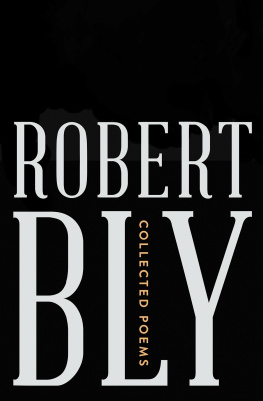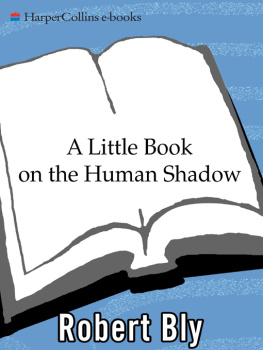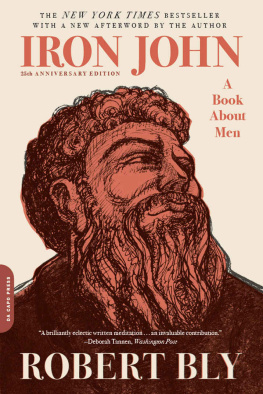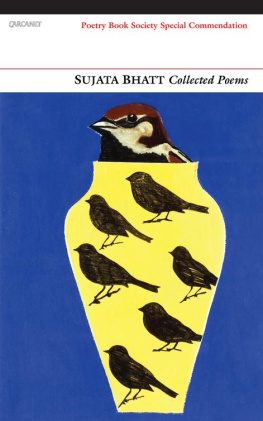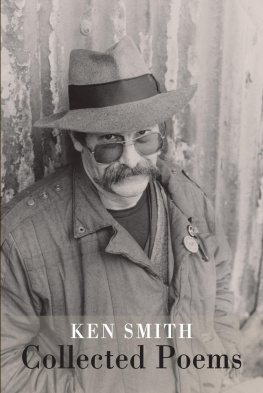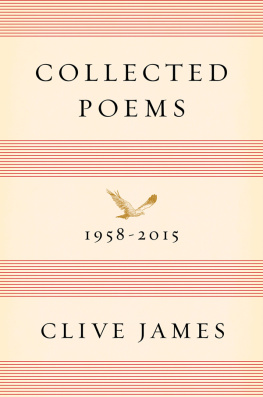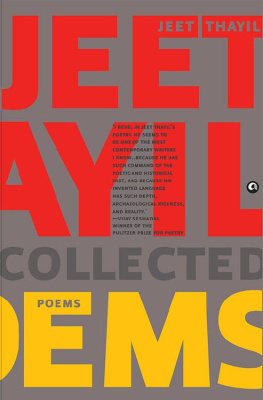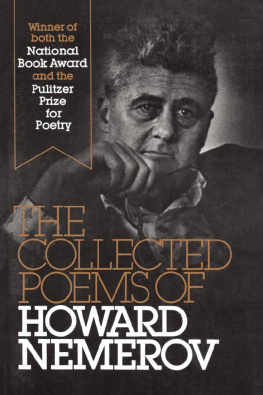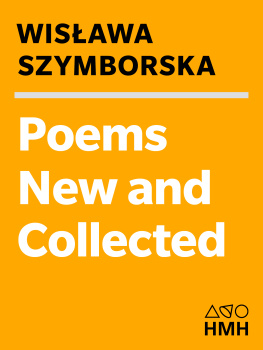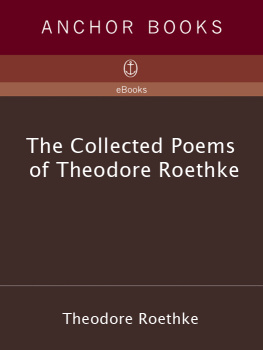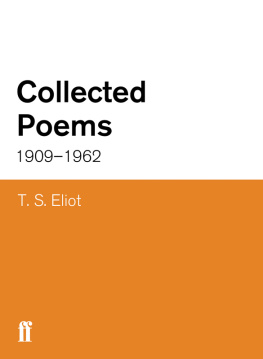Robert Bly - Collected Poems
Here you can read online Robert Bly - Collected Poems full text of the book (entire story) in english for free. Download pdf and epub, get meaning, cover and reviews about this ebook. year: 2018, publisher: W. W. Norton & Company, genre: Detective and thriller. Description of the work, (preface) as well as reviews are available. Best literature library LitArk.com created for fans of good reading and offers a wide selection of genres:
Romance novel
Science fiction
Adventure
Detective
Science
History
Home and family
Prose
Art
Politics
Computer
Non-fiction
Religion
Business
Children
Humor
Choose a favorite category and find really read worthwhile books. Enjoy immersion in the world of imagination, feel the emotions of the characters or learn something new for yourself, make an fascinating discovery.
- Book:Collected Poems
- Author:
- Publisher:W. W. Norton & Company
- Genre:
- Year:2018
- Rating:3 / 5
- Favourites:Add to favourites
- Your mark:
- 60
- 1
- 2
- 3
- 4
- 5
Collected Poems: summary, description and annotation
We offer to read an annotation, description, summary or preface (depends on what the author of the book "Collected Poems" wrote himself). If you haven't found the necessary information about the book — write in the comments, we will try to find it.
Collected Poems — read online for free the complete book (whole text) full work
Below is the text of the book, divided by pages. System saving the place of the last page read, allows you to conveniently read the book "Collected Poems" online for free, without having to search again every time where you left off. Put a bookmark, and you can go to the page where you finished reading at any time.
Font size:
Interval:
Bookmark:


 ROBERT BLY
ROBERT BLY  Adjusting type size may change line breaks. Landscape mode may help to preserve line breaks. For Ruth
Adjusting type size may change line breaks. Landscape mode may help to preserve line breaks. For Ruth IN
THE
SNOWY
FIELDS
 (1962) We are all asleep in the outward man. Jacob Boehme I Sometimes, riding in a car, in Wisconsin Or Illinois, you notice those dark telephone poles One by one lift themselves out of the fence line And slowly leap on the gray sky And past them, the snowy fields. II The darkness drifts down like snow on the picked cornfields In Wisconsin: and on these black trees Scattered, one by one, Through the winter fields We see stiff weeds and brownish stubble, And white snow left now only in the wheeltracks of the combine. III It is a pleasure, also, to be driving Toward Chicago, near dark, And see the lights in the barns.
(1962) We are all asleep in the outward man. Jacob Boehme I Sometimes, riding in a car, in Wisconsin Or Illinois, you notice those dark telephone poles One by one lift themselves out of the fence line And slowly leap on the gray sky And past them, the snowy fields. II The darkness drifts down like snow on the picked cornfields In Wisconsin: and on these black trees Scattered, one by one, Through the winter fields We see stiff weeds and brownish stubble, And white snow left now only in the wheeltracks of the combine. III It is a pleasure, also, to be driving Toward Chicago, near dark, And see the lights in the barns. The bare trees more dignified than ever, Like a fierce man on his deathbed, And the ditches along the road half full of a private snow.
I It is a moonlit, windy night. The moon has pushed out the Milky Way. Clouds are hardly alive, and the grass is leaping. It is the hour of return. II We want to go back, to return to the sea, The sea of solitary corridors, And halls of wild nights, Explosions of grief, Diving into the sea of death, Like the stars of the wheeling Bear.III What shall we find when we return? Friends changed, houses moved, Trees perhaps, with new leaves.
Inside the veins there are navies setting forth, Tiny explosions at the waterlines, And seagulls weaving in the wind of the salty blood. It is the morning. The country has slept the whole winter. Window seats are covered with fur skins, the yard is full Of stiff dogs, and hands that clumsily hold heavy books. Now we wake, and rise from the bed, and eat breakfast! Shouts rise from the harbor of the blood, Mist, and masts rising, the knocks of wooden tackle in the sunlight.
Now we wake, and rise from the bed, and eat breakfast! Shouts rise from the harbor of the blood, Mist, and masts rising, the knocks of wooden tackle in the sunlight. Now we sing, and do tiny dances on the kitchen floor. Our whole body is like a harbor at dawn; We know that our master has left us for the day.
I What is so strange about a tree alone in an open field? It is a willow tree. I walk around and around it. The body is strangely torn, and cannot leave it. At last I sit down beneath it.II It is a willow tree alone in acres of dry corn. Its leaves are scattered around its trunk, and around me, Brown now, and speckled with delicate black, Only the cornstalks now can make a noise. III The sun is cold, burning through the frosty distances of space. The weeds are frozen to death long ago. Why then do I love to watch The sun moving on the chill skin of the branches? IV The mind has shed leaves alone for years. It stands apart with small creatures near its roots.
I am happy in this ancient place, A spot easily caught sight of above the corn, If I were a young animal ready to turn home at dusk.
There is unknown dust that is near us, Waves breaking on shores just over the hill, Trees full of birds that we have never seen, Nets drawn down with dark fish. The evening arrives; we look up and it is there, It has come through the nets of the stars, Through the tissues of the grass, Walking quietly over the asylums of the waters. The day shall never end, we think: We have hair that seems born for the daylight; But, at last, the quiet waters of the night will rise, And our skin shall see far off, as it does underwater. This new snow seems to speak of virgins With frail clothes made of gold, Just as the old snow shall whisper Of concierges in France. The new dawn sings of beaches Dazzling as sugar and clean as the clouds of Greece, Just as the exhausted dusk shall sing Of the waves on the western shore.This new strength whispers of the darkness of death, Of the frail skiff lost in the giant cave, Just as in the boat nearing death you sang Of feathers and white snow.
The sun is sinking. Here on the pine-haunted bank, the mosquitoes fly around drowsily, and moss stands out as if it wanted to speak. Calm falls on the lake, which now seems heavier and inhospitable. Far out, rafts of ducks drift like closed eyes, and a thin line of silver caused by something invisible slowly moves toward shore in the viscous darkness under the southern bank. Because it is the first Sunday of pheasant season, men gather in the lights of cars to divide pheasants, and the chickens, huddling near their electricity, and in some slight fear of the dark, walk for the last time about their little hut, whose floor now seems so bare. Because it is the first Sunday of pheasant season, men gather in the lights of cars to divide pheasants, and the chickens, huddling near their electricity, and in some slight fear of the dark, walk for the last time about their little hut, whose floor now seems so bare.The dusk has come, a glow in the west, as if seen through the isinglass on old coal stoves, and the cows stand around the barn door; now the farmer looks up at the paling sky reminding him of death, and in the fields the bones of the corn rustle faintly in the last wind, and the half-moon stands in the south. Now the lights from barn windows can be seen through bare trees.
I September. Clouds. The first day for wearing jackets. The corn is wandering in dark corridors, Near the well and the whisper of tombs.II I sit alone surrounded by dry corn, Near the second growth of the pigweeds, And hear the corn leaves scrape their feet on the wind. III Fallen ears are lying on the dusty earth. The useful ears will dry in cribs, but the others, missed By the picker, will lie here touching the ground the whole winter. IV Snow will come, and cover the husks of the fallen ears With flakes, infinitely delicate, like jewels of a murdered Gothic prince Which were lost centuries ago during a great battle.
I I am driving; it is dusk; Minnesota. The stubble field catches the last growth of sun.The soybeans are breathing on all sides. Old men are sitting before their houses on carseats In the small towns. I am happy, The moon rising above the turkey sheds. II The small world of the car Plunges through the deep fields of the night, On the road from Willmar to Milan. This solitude covered with iron Moves through the fields of night Penetrated by the noise of crickets. III Nearly to Milan, suddenly a small bridge, And water kneeling in the moonlight.
In small towns the houses are built right on the ground; The lamplight falls on all fours in the grass. When I reach the river, the full moon covers it; A few people are talking low in a boat.
I Oh, on an early morning I think I shall live forever! I am wrapped in my joyful flesh, As the grass is wrapped in its clouds of green. II Rising from a bed, where I dreamt Of long rides past castles and hot coals, The sun lies happily on my knees; I have suffered and survived the night Bathed in dark water, like any blade of grass. III The strong leaves of the box-elder tree, Plunging in the wind, call us to disappear Into the wilds of the universe, Where we shall sit at the foot of a plant, And live forever, like the dust. Next pageFont size:
Interval:
Bookmark:
Similar books «Collected Poems»
Look at similar books to Collected Poems. We have selected literature similar in name and meaning in the hope of providing readers with more options to find new, interesting, not yet read works.
Discussion, reviews of the book Collected Poems and just readers' own opinions. Leave your comments, write what you think about the work, its meaning or the main characters. Specify what exactly you liked and what you didn't like, and why you think so.

